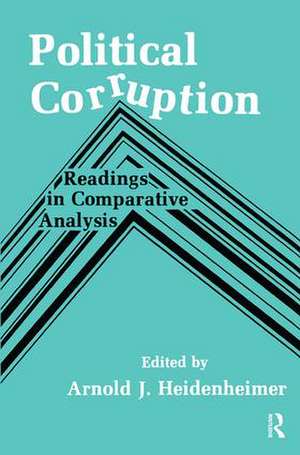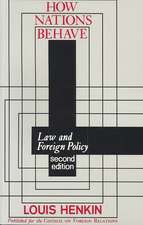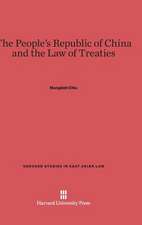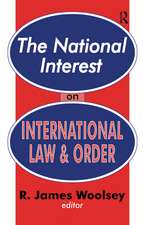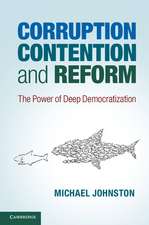Political Corruption: Readings in Comparative Analysis
Editat de Michael Johnstonen Limba Engleză Hardback – 15 noi 2017
| Toate formatele și edițiile | Preț | Express |
|---|---|---|
| Paperback (1) | 430.65 lei 6-8 săpt. | |
| Taylor & Francis – | 430.65 lei 6-8 săpt. | |
| Hardback (1) | 1125.74 lei 6-8 săpt. | |
| Taylor & Francis – 15 noi 2017 | 1125.74 lei 6-8 săpt. |
Preț: 1125.74 lei
Preț vechi: 1372.84 lei
-18% Nou
Puncte Express: 1689
Preț estimativ în valută:
215.48€ • 226.38$ • 181.09£
215.48€ • 226.38$ • 181.09£
Carte tipărită la comandă
Livrare economică 11-25 martie
Preluare comenzi: 021 569.72.76
Specificații
ISBN-13: 9781138530133
ISBN-10: 1138530131
Pagini: 594
Dimensiuni: 152 x 229 x 32 mm
Greutate: 0.93 kg
Ediția:2nd edition
Editura: Taylor & Francis
Colecția Routledge
Locul publicării:Oxford, United Kingdom
ISBN-10: 1138530131
Pagini: 594
Dimensiuni: 152 x 229 x 32 mm
Greutate: 0.93 kg
Ediția:2nd edition
Editura: Taylor & Francis
Colecția Routledge
Locul publicării:Oxford, United Kingdom
Cuprins
1: The Context of Analysis; 1: Definitions, Concepts, and Criteria; 1: What Is the Problem about Corruption?; 2: The Concept of Corruption 1; 3: The Sociology of Corruption; 4: Techniques of Political Graft; 5: The Definition of Corruption; 6: The Nature of Political Corruption; 7: Black-Market Bureaucracy; 2: The Evolution of Public-Office Concepts and Rules; 8: Corruption as a Historical Phenomenon; 9: Performance Levels and Bureaucratic Structures; 10: The Sale of Public Offices; 11: Bureaucratic Institutionalization in Nineteenth Century Europe; 12: Patronage and the Public Service: Jeffersonian Bureaucracy and the British Tradition; 3: Behavioral and Normative Perspectives on the “Incidence” of Corruption; 13: The Moral Basis of a Backward Society; 14: Patronage In Sicily 1; 15: Village Friendship and Patronage; 16: Crime and Mobility among Italian-Americans; 17: The Politics of Corruption in an American City; 18: Ticket-Fixing in Massachusetts; 2: The Analysis of Administrative Corruption; 4: South and Southeast Asia; 19: Sociological Aspects of Corruption in Southeast Asia 1; 20: The “Sala Model” and Comparative Administration; 21: The Dimensions of Corruption in India; 22: Corruption as a Hindrance to Modernization in South Asia; 5: Contemporary Europe; 23: Administrative Corruption in Theory and Dutch Practice; 24: The British Method of Dealing with Political Corruption; 25: The Decline of the Bureaucratic Ethos in the Federal Republic; 6: The United States; 26: Corruption: The Special Case of the United States; 27: Spoilsmen and Reformers: Civil Service Reform and Public Morality; 28: Municipal Corruption: A Comment on Lincoln Steffens 1; 29: A Theory about Corruption; 30: Corruption: The Shame of the States; 31: The Purity Potlatch: Conflict of Interests and Moral Escalation; 7: Africa; 32: Corruption in the Public Services of British Colonies and Ex-Colonies in West Africa; 33: Nepotism and Bribery in West Africa; 34: New States and the Concept of Corruption; 35: Kleptocracy as a System of Government in Africa; 3: The Analysis of Electoral and Legislative Corruption; 8: Western Europe; 36: How the Government Won Elections under Napoleon III; 37: Socioeconomic Development and the Incidence of English Corrupt Campaign Practices; 38: The Nature and Decline of Corrupt Election Expenditures in Nineteenth-Century Britain; 39: German Attempts at the Legal Definition of Parliamentary Corruption; 9: The United States; 40: The Alarming Proportion of Venal Voters in Connecticut; 41: The Purchase of Votes in New York City; 42: The City Boss: Game Politician or Gain Politician; 43: Congressional Ethics and the Conflict of Interest Issue; 44: 44.Group Politics and the Disclosure Idea; 10: The Developing Nations; 45: Bribery in the Election of Ashanti Chiefs; 46: Remuneration Levels and Corruption in French-Speaking Africa; 47: Corruption and Self-Interest in Kampala and Nairobi; 48: The Peso Price of Politics in the Philippines; 4: Corruption and Modernization; 11: Assessing Effects, Toxic and Tonic; 49: Towards a Grammar of Graft; 50: Modernization and Corruption; 51: Apologies for Political Corruption; 52: Economic Development through Bureaucratic Corruption 1; 53: The Effects of Corruption in a Developing Nation; 54: The Contribution of Nepotism, Spoils, and Graft to Political Development; 55: Corruption: Its Causes and Effects; 56: Bureaucracy versus Kleptocracy; 57: Corruption, Machine Politics, and Political Change; 58: Corruption and Political Development: A Cost-Benefit Analysis
Descriere
Corruption is once again high on the international policy agenda as a result of globalization, the spread of democracy, and major scandals and reform initiatives
